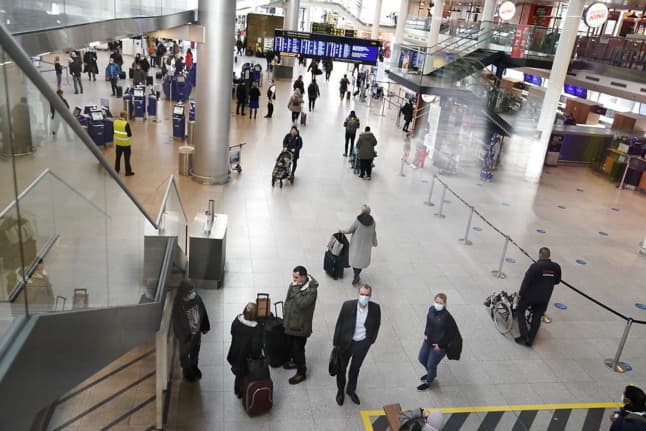Copenhagen Airport baggage handlers end wildcat strikes

Baggage handlers with the SAS Ground Handling company have returned to work after wildcat strikes which disrupted services from Saturday through to Monday.
The baggage staff resumed work from midnight at the end of Monday.
Danish media including broadcaster DR and news wire Ritzau reported that their employer, SAS, had said they would consider any continuation of the strikes to be a notice of resignation from the workers.
The strike action was in breach of the collective bargaining agreement – the labour contract -- betwee
n 3F, the trade union which acts for the baggage handlers, and their employers.
SAS Ground Handling processes baggage for several airlines – not just SAS – in Copenhagen, meaning many passengers were affected by the strikes.
READ ALSO: Copenhagen Airport baggage strikes: Passengers may have right to compensation
The airport is now operating normally, acting head of media relations for Copenhagen Airport Lars Lemche told Ritzau.
But there remains a backlog with luggage that must now be forwarded to passengers who travelled without it because it was not loaded on to aircraft during the strike.
Copenhagen Airport has provided staff to help speed up this process, according to Lemche.
“We are back to normal, we now just need to tidy up,” he said.
Dissatisfaction with wage and working conditions including the number of weekend and evening shifts are reported to be the reason for the SAS ground staff strikes.
Comments
See Also
The baggage staff resumed work from midnight at the end of Monday.
Danish media including broadcaster DR and news wire Ritzau reported that their employer, SAS, had said they would consider any continuation of the strikes to be a notice of resignation from the workers.
The strike action was in breach of the collective bargaining agreement – the labour contract -- betwee
n 3F, the trade union which acts for the baggage handlers, and their employers.
SAS Ground Handling processes baggage for several airlines – not just SAS – in Copenhagen, meaning many passengers were affected by the strikes.
READ ALSO: Copenhagen Airport baggage strikes: Passengers may have right to compensation
The airport is now operating normally, acting head of media relations for Copenhagen Airport Lars Lemche told Ritzau.
But there remains a backlog with luggage that must now be forwarded to passengers who travelled without it because it was not loaded on to aircraft during the strike.
Copenhagen Airport has provided staff to help speed up this process, according to Lemche.
“We are back to normal, we now just need to tidy up,” he said.
Dissatisfaction with wage and working conditions including the number of weekend and evening shifts are reported to be the reason for the SAS ground staff strikes.
Join the conversation in our comments section below. Share your own views and experience and if you have a question or suggestion for our journalists then email us at [email protected].
Please keep comments civil, constructive and on topic – and make sure to read our terms of use before getting involved.
Please log in here to leave a comment.